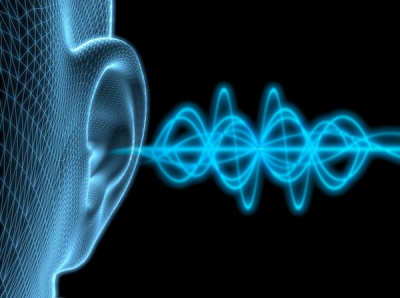Tinnitus - What is it and how to treat it?
Author: Pavel Cermak
Ringing in the ears, known as "tinnitus," is a very distressing phenomenon that can significantly impact one's quality of life. Early identification of its causes and adequate treatment are essential for symptom relief, offering substantial relief. Let’s explore what tinnitus is, its symptoms, and available treatments, including the use of CBD for tinnitus.
What is Tinnitus?
Tinnitus, often referred to as "ringing in the ears," is a condition characterized by hearing sounds in the ears or head without an external sound source. These sounds can vary, such as ringing, humming, buzzing, or hissing. Tinnitus itself is not a disease but a symptom of other health issues.
Causes of Tinnitus
- Hearing damage: Exposure to explosions, loud concerts, or prolonged periods in noisy environments can damage hearing and lead to tinnitus.
- Aging: Age-related hearing decline can result in tinnitus.
- Ear disorders: Various ear issues, like Ménière’s disease, ear infections, or otosclerosis, are associated with tinnitus.
- Circulatory problems: Issues with blood pressure, vascular disease, or atherosclerosis can affect blood flow in the ears, causing tinnitus.
- Stress and anxiety: Psychological factors like stress and anxiety can worsen or trigger tinnitus.
Tinnitus can be temporary or chronic and vary in intensity. If you suspect you have tinnitus, consult a doctor or audiologist to determine the cause and find suitable treatment.
Is Tinnitus always related to hearing loss?
No, tinnitus isn’t always related to hearing loss, though many with tinnitus may also have some degree of hearing impairment. Tinnitus can arise from various causes, sometimes even in individuals with normal hearing.
There are three primary types of tinnitus:
- Subjective Tinnitus: The most common type, where only the individual hears the sounds.
- Objective Tinnitus: A rarer form that can be heard by a doctor during an examination.
- Neurological Tinnitus: This form may be linked to neurological issues, not necessarily hearing loss.
How is Tinnitus treated?
Treatment depends on the cause. For temporary tinnitus, it may resolve on its own, especially if caused by brief exposure to loud noise or an ear infection.
Chronic tinnitus may require treatment aimed at managing symptoms, including:
- Medications: Certain medications like anti-anxiety drugs or antidepressants can help manage tinnitus symptoms.
- Lifestyle changes: Reducing exposure to loud sounds, managing stress, and ensuring good nutrition and sleep can help reduce tinnitus.
- Sound therapy: This can include white noise or low-volume headphones to mask or minimize tinnitus sounds.
- Behavioral therapy: Cognitive Behavioral Therapy (CBT) can help patients adjust and reduce the psychological impact of tinnitus.
- Treating underlying causes: Addressing specific causes, such as infections or vascular issues, may improve tinnitus.
- Supplements: Some supplements may also positively impact tinnitus.
Tinnitus and CBD - How can it help?
Recent research by Dr. Russo suggests that endocannabinoid receptors play a significant role in the pathology of tinnitus, where THC and CBD may positively influence this condition.
CBD, known for its antidepressant and antipsychotic effects, supports serotonin production and helps protect the brain from oxidative stress. Combining CBD with CBG can offer enhanced neurological benefits.
Recommended CBD dosing for Tinnitus
Start with 2.5 ml daily after meals and increase to 5 ml after a week. Adding CBD + CBG oil may further enhance effects, beginning with two drops midday and evening, then adjusting after a week.
Dietary Supplements
In addition to CBD, recommended supplements include Vitamin B12 (as methylcobalamin or adenosylcobalamin) for brain and CNS support and Hericium mushroom.
Exercises and therapies for Tinnitus
- Sound therapy: Uses white noise or soothing sounds to mask tinnitus, aiding relaxation and sleep.
- Relaxation exercises: Techniques like meditation, deep breathing, and progressive muscle relaxation can reduce stress related to tinnitus.
- Cognitive behavioral therapy (CBT): Helps modify thought patterns and behavior related to tinnitus.
- Behavioral therapy: Teaches patients new ways to respond to tinnitus, providing emotional control.
- Sound and music therapy: Uses specific frequencies or musical therapies to affect tinnitus perception.
Cervical spine-related Tinnitus
This type, also called cervical tinnitus, may stem from neck issues affecting blood flow and nerve activity. Possible causes include:
- Muscle tension and vertebrae misalignment: Tension or misalignment in the neck muscles or cervical spine can contribute to tinnitus.
- Arthritis or osteoarthritis: These conditions may impact the joints and vertebrae in the neck, influencing tinnitus.
- Temporomandibular joint disorders (TMJ): TMJ dysfunction can impact the neck and contribute to tinnitus.
- Cervical vascular disorders: Blood flow issues in the neck vessels can lead to tinnitus.
Is it possible to completely cure Tinnitus?
The possibility of curing tinnitus depends on many factors, including its cause and individual response to various treatments. Some cases are temporary and resolve with the treatment of an underlying condition, while others may be chronic.
While complete relief may not always be achievable, treatments and therapies can help manage and reduce the difficulties associated with tinnitus.


